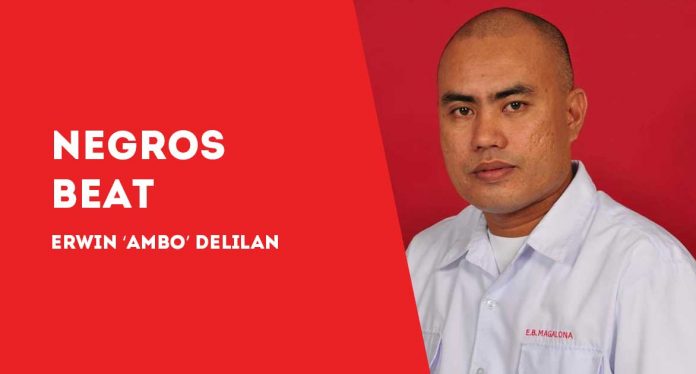
THE TRAGIC road accident on Good Friday in Barangay Alangilan, Bacolod City has sparked a public communication battle — what could be described as a “comwar” — between the Corazon Locsin Montelibano Memorial Regional Hospital (CLMMRH) and Bombo Radyo-Bacolod.
At the center of the controversy is the case of Daynah Plohinog, a 21-year-old college student, who was allegedly denied admission to the hospital and passed away on the morning of April 19, just 14 hours after the accident. The incident triggered widespread outrage, particularly on Facebook, following accusations that CLMMRH’s “No family, no admission” policy contributed to her death.
The situation escalated when Bombo Radyo-Bacolod provided live coverage of the incident, during which a member of the Disaster Risk Reduction and Management Council (DRRMC) approached Bombo reporter Arjay Kim Casipe and appealed for Plohinog’s family in La Carlota to come forward. According to the rescuer, the hospital was refusing admission because no family members were present at the scene.
This live broadcast reportedly angered Dr. Dominic Alojado, the attending physician at CLMMRH’s Emergency Room at the time. Dr. Alojado took to social media, calling out Bombo Radyo-Bacolod for what he described as a misrepresentation of the events. He clarified that in emergency cases, the hospital does everything it can to care for the patient, including finding a bed or stretcher. The issue, according to him, was the crowded condition at the hospital, which made it difficult to immediately attend to every patient.
He further explained that the hospital had simply asked Plohinog’s family to come and sign the necessary paperwork to facilitate her admission and continued treatment, including any special procedures she might have required. Dr. Alojado urged Bombo Radyo-Bacolod to be fair in their reporting.
Following his statement, CLMMRH issued an official response on April 19, refuting the claims made by the radio station. The hospital’s statement, posted on its Facebook page, categorically denied that Plohinog had been denied treatment due to the absence of family members. “This is categorically false,” the statement read. “CLMMRH upholds its duty to provide urgent, compassionate care to all patients, regardless of their status or family presence.”
The hospital emphasized that its medical team had acted swiftly and in accordance with established protocols during the incident, and that misinformation like this not only undermines public trust but also discredits the efforts of medical professionals.
Bombo’s Rebuttal
In response, Daniel Lecciones, station manager of DYWB Bombo Radyo-Bacolod, stood by the accuracy of their live coverage. On April 19, Lecciones posted a rebuttal on Facebook, urging CLMMRH to prioritize constructive dialogue over adversarial denials. He pointed out that the public deserved clarity on policies that could potentially jeopardize lives, especially in critical situations.
Lecciones reiterated that during their live coverage of the incident around 8 p.m. on April 18, a DRRMC member had approached their reporter to appeal for the family of Plohinog to come to the hospital so she could receive treatment. If the rescuer’s statement had been miscommunicated, Lecciones argued, the hospital needed to address why its personnel had given such instructions during an emergency. He also called on CLMMRH to clarify its admission protocols publicly.
Gerona’s Case
Plohinog’s case brought to mind a similarly controversial incident from November 2003: the death of Army Major Nelson Gerona in a road accident in Adela, Silay City, Negros Occidental. Gerona was one of 15 fatalities in the crash, but his case was especially notable for the reports that he had been denied emergency treatment at a private hospital in Bacolod, leading to a loss of blood and, ultimately, his death. A civil suit was filed against the hospital, but the case was eventually settled in favor of the Gerona family.
‘Comwar’
The term “comwar” refers to a strategy used in military communication to achieve specific objectives. In the case of CLMMRH and Bombo Radyo-Bacolod, the “comwar” ultimately clarified the hospital’s actual admission policy.
For me, and I stand to be corrected, Bombo Radyo-Bacolod did not err in broadcasting the live appeal. It was a coincidence — though a significant one — that prompted CLMMRH to clarify its admission policy. Thanks to the live coverage by Bombo Radyo-Bacolod and the subsequent response from CLMMRH, the clarification came to light.
In the end, the situation turned out to be a “beautiful coincidence” — a necessary clarification that shed light on the hospital’s procedures, thanks to a miscommunication that led to a greater understanding for the public.Thank you to Bombo Radyo-Bacolod and CLMMRH for helping reveal the truth in such an unexpected way./PN







